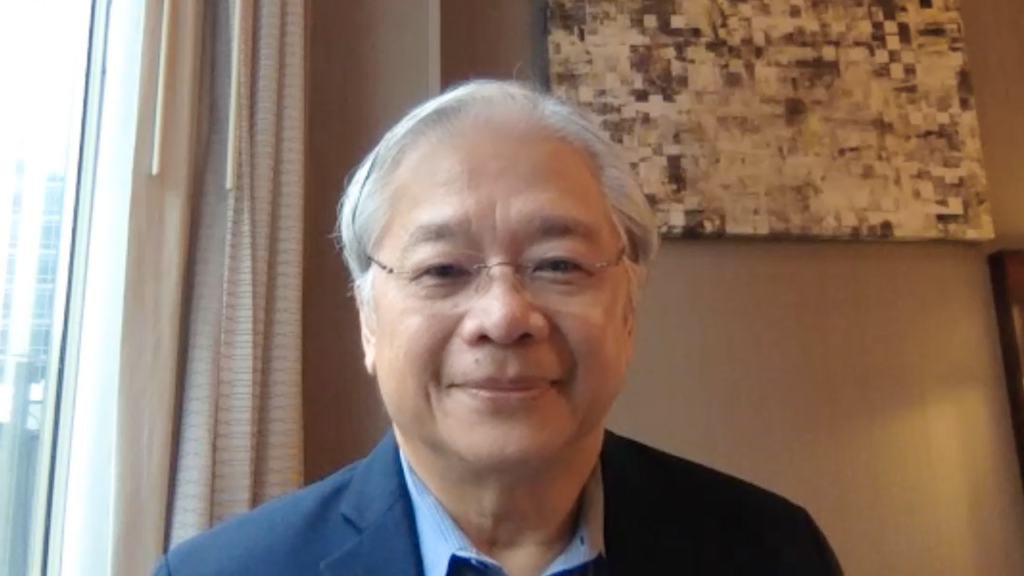 Broadest approval to date in generalized myasthenia gravis
Broadest approval to date in generalized myasthenia gravis
The FDA approval of nipocalimab for generalized myasthenia gravis (gMG) introduces a targeted therapy within a validated class, offering the potential for durable disease control across the broadest patient population to date. This approval represents a significant advance in a disease area long managed with broad-spectrum immunosuppressants.¹
Nipocalimab is indicated for use in adult patients with gMG, regardless of antibody status, including:
- AChR antibody positive (AChR+)
- MuSK antibody positive (MuSK+)
- Seronegative (double-negative)
Mechanism of action: FcRn inhibition
Nipocalimab is a human immunoglobulin G (IgG)1 monoclonal antibody that binds to the neonatal Fc receptor (FcRn) and works by selectively inhibiting FcRn, which normally protects IgG antibodies from degradation. By blocking FcRn, nipocalimab accelerates the breakdown of pathogenic IgG autoantibodies, thereby mitigating their contribution to gMG pathogenesis.2
This targeted approach modulates immune activity without inducing global immunosuppression, offering a refined safety profile compared to other available therapies.3
Clinical data: Phase 3 VIVACITY-MG study
Approval was based on results from the VIVACITY-MG Phase 3 trial, a randomized, double-blind, placebo-controlled study (ClinicalTrials.gov, NCT04951622), specifically designed to measure sustained efficacy and safety with consistent dosing in this chronic condition where unmet needs remain high.3
The study enrolled 199 adults with inadequate response to standard-of-care (SOC) therapy (MG-ADL ≥6); 153 were antibody positive. Patients were randomized 1:1 to receive nipocalimab (30 mg/kg IV loading dose, then 15 mg/kg every two weeks) plus SOC or placebo plus SOC.⁴ Baseline characteristics were balanced (77 nipocalimab, 76 placebo).1,3
The trial met its primary endpoint, with a statistically significant improvement in Myasthenia Gravis Activities of Daily Living (MG-ADL) scores in the nipocalimab group compared to placebo. Secondary endpoints, including quantitative myasthenia gravis (QMG) and Myasthenia Gravis Quality of Life 15-item Scale
(MG-QoL15r) scores, also showed significant benefit. Adverse events were generally mild to moderate. Nipocalimab was generally well tolerated across study participants. Full safety data will be available in prescribing information upon commercial launch.1,3
MG-ADL provides a rapid clinical assessment of the patient’s recall of symptoms impacting activities of daily living, with a total score range of 0 to 24; a higher score indicates greater symptom severity.4
Key findings:
- Statistically significant improvements in MG-ADL scores by Week 8.
- Sustained symptom control over the 24-week trial duration.
- Rapid clinical response observed in some patients as early as two weeks.
- Adverse events were generally mild to moderate.
Clinical impact
Speaking on the approval, Dr. Nicholas J. Silvestri, M.D., Professor of Neurology at University of Buffalo said “The clinical results we’ve seen with IMAAVY represent a significant milestone in the treatment of gMG,” and “Patients experienced substantial symptom relief and lasting disease control that translated into better daily function and did not fade over 24 weeks in the pivotal Vivacity-MG3 study. Having a treatment that delivers this level of durable symptom stability is a meaningful step forward for managing a complex and unpredictable disease like gMG, and to have it in both AChR+ and MuSK+ adults and pediatric patients 12 years and older brings an additional FcRn treatment to a broader range of patients.”1
Full press release available here
Editor: Katey Gabrysch, Editorial Director.
Disclosures: This article was created by the touchNEUROLOGY team utilizing AI as an editorial tool (ChatGPT (GPT-4o) [Large language model]. https://chat.openai.com/chat.) The content was developed and edited by human editors. No funding was received in the publication of this article.
Cite: Nipocalimab for generalized myasthenia gravis: First FcRn blocker approved for broad adult population. touchNEUROLOGY. 02 June 2025.
References:
- Johnson & Johnson. Johnson & Johnson receives FDA approval for IMAAVY (nipocalimab-aahu), a new FcRn blocker offering long-lasting disease control in the broadest population of people living with generalized myasthenia gravis (gMG). PR Newswire. 2025. Available from: https://www.prnewswire.com/news-releases/johnson–johnson-receives-fda-approval-for-imaavy-nipocalimab-aahu-a-new-fcrn-blocker-offering-long-lasting-disease-control-in-the-broadest-population-of-people-living-with-generalized-myasthenia-gravis-gmg-302442650.html (accessed 02 June 2025).
- Howard JF, Bril V, Utsugisawa K, et al. Randomized phase 3 trial of nipocalimab in generalized myasthenia gravis. N Engl J Med. 2024;390(23):2142–2154. doi:10.1056/NEJMoa2308915.
- Bril V, Utsugisawa K, Mantegazza R, et al. Nipocalimab for generalized myasthenia gravis: a randomised, double-blind, placebo-controlled, phase 3 trial. Lancet Neurol. 2024. doi:10.1016/S1474-4422(24)00498-8.
- Wolfe GI. Myasthenia gravis activities of daily living profile. Neurology. 1999;52(7):1487–1489. doi:10.1212/wnl.52.7.1487
Register now to receive the touchNEUROLOGY newsletter!
Don’t miss out on hearing about our latest peer reviewed articles, expert opinions, conference news, podcasts and more.









